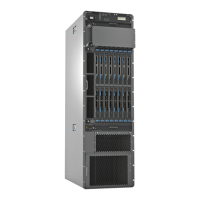•
PTX5000 Physical Specifications on page 255
6. Verify that the plan for power installation meets all electrical safety guidelines.
See “PTX5000 General Electrical Safety Guidelines” on page 239.
7. Verify that your rack meets the minimum requirements for the installation of the
packet transport switch.
•
Rack Requirements for the PTX5000 Packet Transport Switch on page 56
•
PTX5000 Chassis Description on page 12
8. Plan to secure the rack to the floor and building structure.
See “Rack Requirements for the PTX5000 Packet Transport Switch” on page 56.
9. Acquire cables and connectors:
•
Determine the number of cables and type of cable needed based on your planned
configuration.
•
“Network Cable and Transceiver Overview for PTX Series Packet Transport
Switches” on page 267 and PTX5000 Packet Transport Switch PIC Guide
•
Supported Network Interface Standards by Transceiver
•
Review the maximum distance allowed for each cable. Choose the length of cable
based on the distance between the hardware components being connected.
•
Calculating Power Budget and Power Margin for Fiber-Optic Cables on page 269
•
Understanding Fiber-Optic Cable Signal Loss, Attenuation, and Dispersion on
page 268
10. Plan the cable routing and management.
•
PTX5000 Cable Management System on page 15
•
Maintaining the PTX5000 PIC Cables on page 112
Related
Documentation
PTX5000 Packet Transport Switch Description on page 3•
• Overview of Installing the PTX5000 Packet Transport Switch on page 53
Rack Requirements for the PTX5000 Packet Transport Switch
•
Rack Size and Strength on page 56
•
Spacing of Mounting Bracket and Flange Holes on page 58
•
Connection to Building Structure on page 58
Rack Size and Strength
The PTX5000 Packet Transport Switch is designed for installation in a rack that complies
with either of the following standards:
Copyright © 2012, Juniper Networks, Inc.56
PTX5000 Packet Transport Switch Hardware Guide

